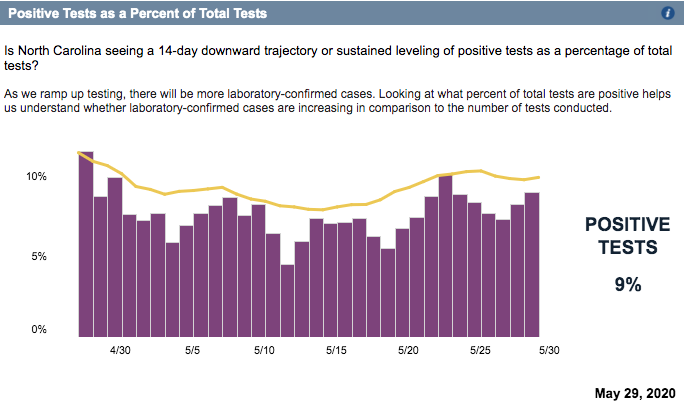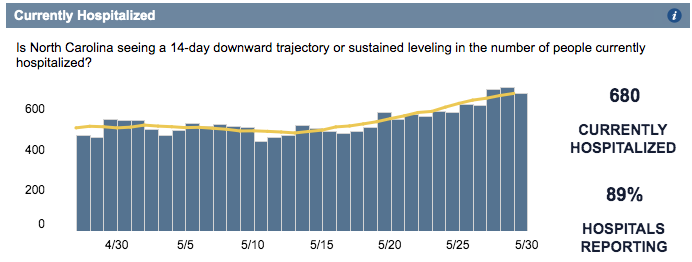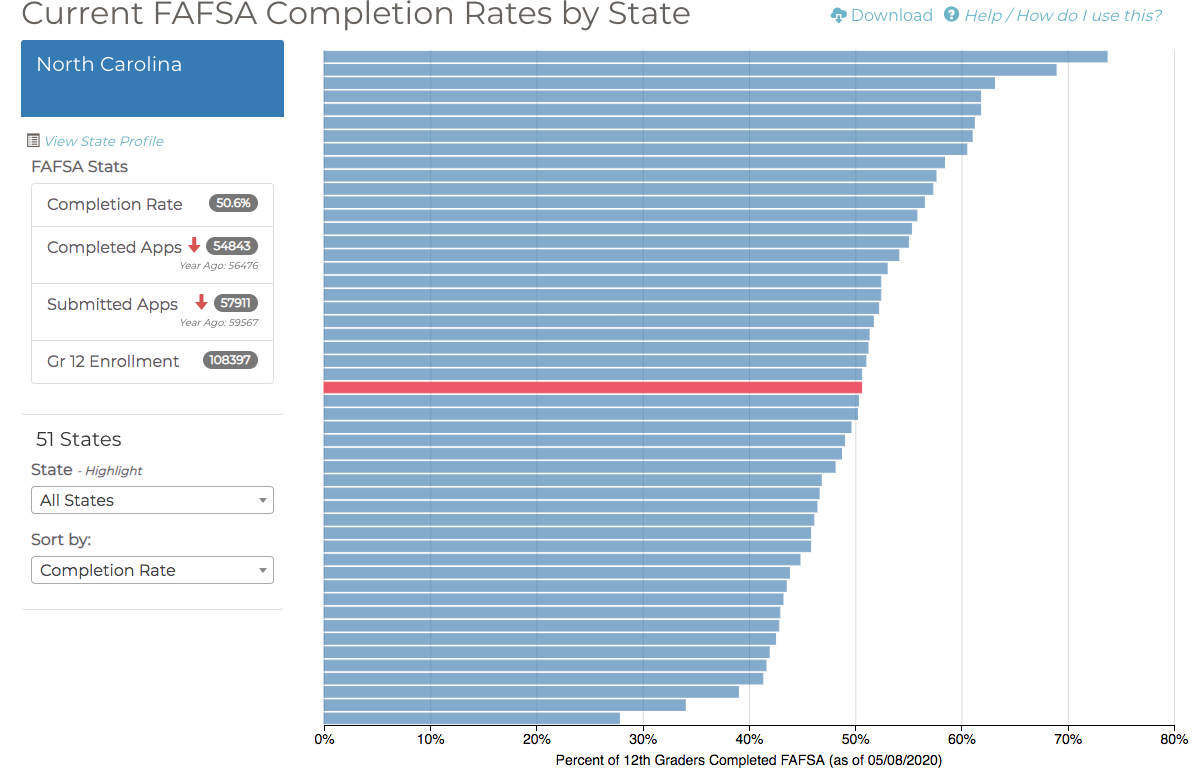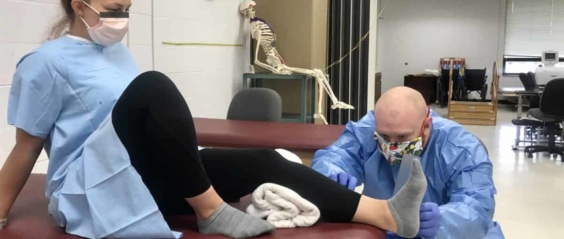Need to know: COVID-19
- As of 11 a.m. on Friday, May 29, there were 26,488 confirmed cases in all 100 counties. NC DHHS updated their case count dashboard to show cases by county. Check it out here.
- North Carolina is in Phase 2 of reopening, “safer at home.” See where North Carolina stands currently below.
- 2.1 million people filed for unemployment nationwide last week. From March 15 to May 28, 969,031 North Carolinians have filed unemployment insurance claims. The state has paid 640,797 claimants.
For more, view all of EdNC’s COVID-19 coverage here.
COVID-19: Tracking NC’s progress
As I noted last week, the state has revised its website and added new data dashboards. These dashboards provide an easy way to see data on cases, testing, hospitalizations, and PPE. Here’s where North Carolina stands one week into Phase 2.
Testing: North Carolina continues to ramp up testing. Just today, May 29, more than 15,000 tests were completed, bringing the total number of tests to 329,231. The number of positive cases continues to increase, but positive tests as a percent of total tests appear to be leveling off after increasing slightly last week.

Hospitalizations, on the other hand, are on the rise, hitting an all-time high this week. As of May 29, only 16% of intensive care unit hospital beds were available.

Policy challenge: FAFSA completion
Completing the Free Application for Federal Student Aid (FAFSA) is crucial for anyone hoping to go to college. The FAFSA opens the door for students to get help paying for college — from subsidized loans to grants to scholarships. Yet as of May 8, only half of North Carolina’s high school seniors had completed a FAFSA.

Nationally, FAFSA completions are down when compared to the same time period last year likely due to COVID-19. FAFSA renewals, which students must submit every year they are in college, are also down, especially among Pell-eligible students.
So, what should North Carolina do to increase FAFSA completions? My colleague Analisa outlines six strategies for states to boost FAFSA completion. The strategies include:
- Set a goal
- Build shared ownership
- Create incentives
- Use data
- Establish partnerships
- Spread awareness
North Carolina can also learn from two of its southern neighbors, Tennessee and Louisiana, both of whom have had FAFSA completion rates of 80% or higher in the past few years with different policy approaches. I interviewed Bob Obrohta, executive director of the Tennessee College Access & Success Network, and Sujuan Boutté, executive director of the Louisiana Office of Student Financial Assistance, to see what NC can learn from them. Both stressed the importance of building relationships and trust with students and families.
Read the rest of EdNC’s FAFSA series here, including this helpful guide to completing the FAFSA.
What we're reading
How North Carolina’s community colleges are responding to COVID-19: A new database from EdNC
Following on our work with Public Impact to create a K-12 database, EdNC created a database tracking how North Carolina's 58 community colleges are responding to COVID-19. ... Read the rest-
How Sports Can Help Rebuild America
-
Meatpacking plant COVID-19 outbreaks grow, information limited
-
As recession deepens, colleges are cutting back on career services
-
Women Disproportionately Losing Their Jobs During Coronavirus Downturn
-
How coronavirus contact tracing works in a state Dr. Fauci praised as a model to follow
-
Candidates sound off on state superintendent’s role during COVID-19


